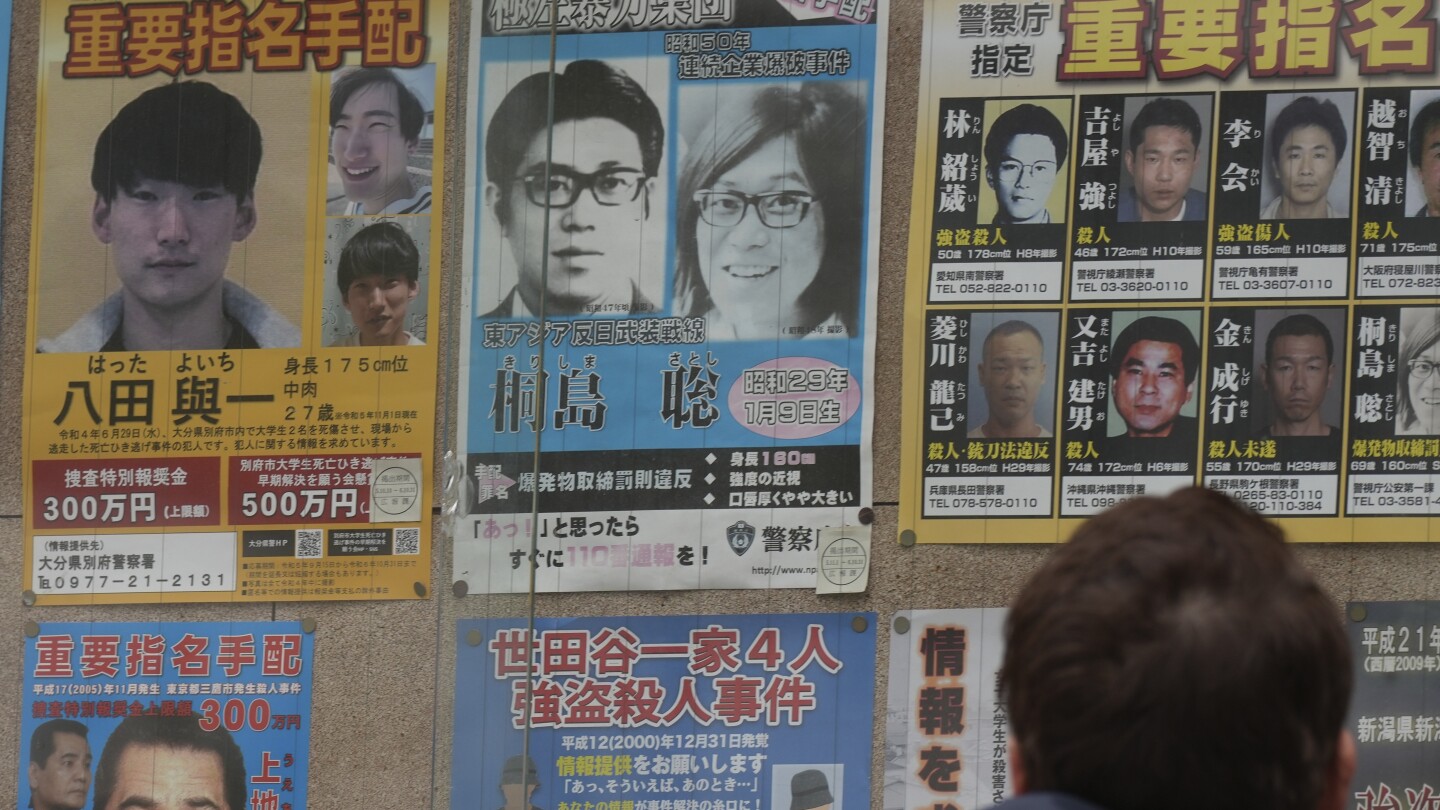TOKYO (AP) — A man who died at a Japanese hospital this week told police before he passed away that he was one of the country’s most wanted fugitives and had been on the run for nearly 50 years for being part of a radical group that carried out bombings in the 1970s, police said Friday.
Police had received a tip and went to the hospital near Tokyo last week to question the 70-year-old man. He told them he had terminal cancer and wanted to die using his real name, Satoshi Kirishima, instead of his alias and disclosed previously unknown details about the bombings, police said.
On Monday, four days after the questioning, the man died without police having confirmed his identity. DNA tests conducted on him and on relatives of the suspect in the case showed they were compatible, Kyodo News reported Friday. Police would not confirm that report.
“We believe that the man who died at the hospital after claiming to be Satoshi Kirishima was actually the suspect,” National Police Agency chief Yasuhiro Tsuyuki said Thursday.
Born in 1954, Kirishima was a university student in Tokyo when he became involved in extremism and joined the East Asia Anti-Japan Armed Front, a militant group that carried out a series of bombings targeting major Japanese companies in the 1970s. Eight people died and more than 160 were injured in the 1975 bombing of a Mitsubishi Heavy Industries building which was blamed on the group.
Kirishima was allegedly involved in a number of the bombings. He was wanted on charges of setting off a time bomb in a building in Tokyo’s posh Ginza district in April 1975 in which no one was injured.
Though not a key member of the group, he was said to be the only one of 10 members who was never caught.
While on the run, Kirishima did not have a cellphone or health insurance and had his salary paid in cash to avoid detection, according to NHK public television.
On Friday, police investigators raided a construction company where he had lived and worked using the alias Hiroshi Uchida for about 40 years, NHK and other media said.
A photo on Kirishima’s wanted poster shows him smiling, with long hair and glasses.
Two members of the group were sentenced to death, including founder Masashi Daidoji, who died on death row in 2017. Two of the eight members of the group who were indicted in the bombings are still at large after their release in 1977 as part of a deal negotiated by another radical group, the Japanese Red Army, when it hijacked a Japan Airlines plane in Bangladesh.

